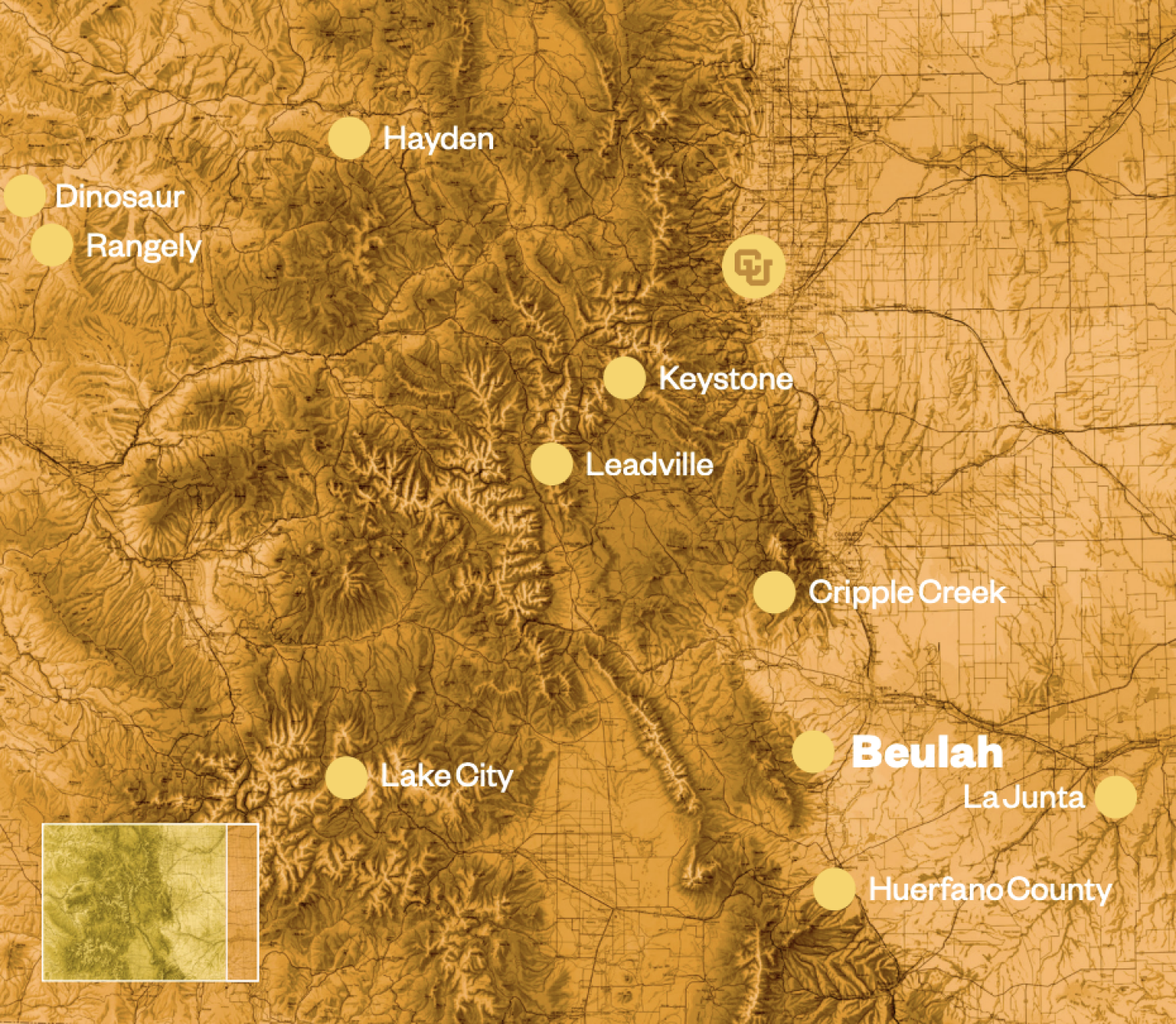
Helping Rural Communities Thrive
In rural Colorado, outdoor recreation is a powerful tool for economic development as it encourages visitors to spend more time and money in local communities. But developing these assets can be an arduous process.
The Rural Technical Assistance program (RTAP) provides pro bono assistance to these small towns with the help of graduate students and faculty in CU Boulder’s Masters of the Environment (MENV) program, federal and state agencies and other higher education partners. Together, they offer community workshops and goal-oriented action plans centered on boosting outdoor recreation.
In the close-knit Colorado community of Beulah, located southwest of Pueblo, neighbors Linda Overlin (Edu’71) and Joel David May (Arch’80) saw the potential of outdoor recreation to enliven their 600-resident town. Supported by the RTAP program, including a two-day graduate student-facilitated workshop, the community prioritized ways to develop its outdoor recreation economy.
Already, they’ve created partnerships with a land conservancy and private landowners to explore how conservation easements and trail developments could help preserve Beulah’s rural ranchlands. The goal is to provide greater connectivity between downtown and Pueblo Mountain Park, which consistently draws many tourists and visitors.
Eight other communities — Keystone, La Junta, Huerfano County, Lake City, Rangely and Dinosaur, Leadville, Hayden, and Cripple Creek — have participated in RTAP.
“Beulah has taught me so much about what ‘community’ means,” said Emily Glass (MEnv’25). “When designed meaningfully,community-engaged work is an opportunity to weave together different perspectives, ideas and expertise that otherwise may not have come together.”
Photo courtesy Raven Maps & Images

Outdoor recreation can bring more people to small Colorado towns.

